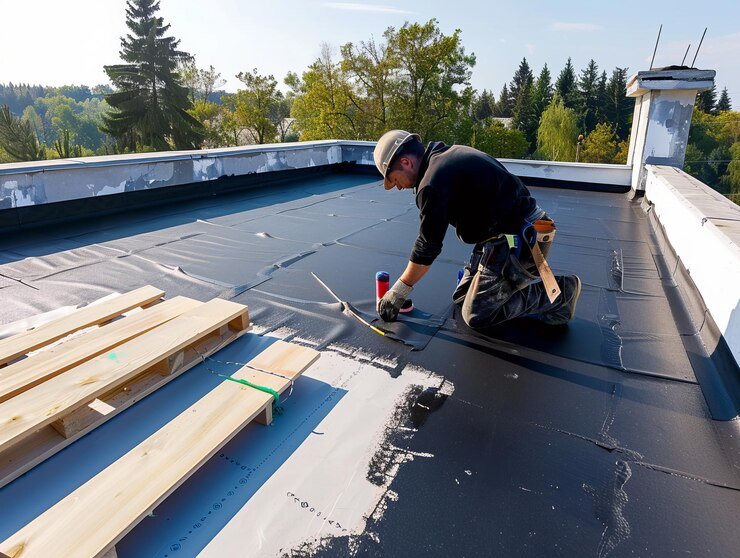Aesthetic renovations such as kitchen remodels, new paint, or landscaping are generally prioritized by homeowners to increase property value and attract possible purchasers. On the other hand, waterproofing is an important but sometimes disregarded renovation that may significantly increase a home’s value and appeal. One of the main factors contributing to structural degradation in homes is water damage, which can be prevented with proper waterproofing. Protecting a property against problems such as leaks, mold, and foundation damage allows homeowners to increase the value of their investment while maintaining the durability and integrity of their houses.
Preventing Costly Water Damage
The structural elements of a house, such as the foundation, flooring, and walls, can be severely damaged by water damage. Even small leaks over time can cause more significant problems, like wood decay, the spread of mold, and impaired structural integrity. These issues raise red flags for prospective purchasers and lower a home’s value. A house that has obvious evidence of water damage, such as warped flooring or stains on the ceiling, is unlikely to draw offers or might get one at a lesser price.
Boosting Buyer Confidence
In a competitive real estate market, purchasers seek homes combining long-term durability and aesthetic appeal. The prospect of unanticipated maintenance after buying a property is one of the biggest worries for any buyer. In particular, water damage might require substantial and expensive repairs, which many first-time homeowners would want to avoid. A fully waterproofed home gives prospective purchasers peace of mind since it shows that the property has been well-maintained and shielded against one of the most frequent causes of home damage.
Enhancing Energy Efficiency
In addition to improving a home’s energy efficiency, proper waterproofing might draw in purchasers concerned about the environment or want to reduce their electricity bills. Unwanted drafts from water incursion can make heating and cooling systems work harder to keep interior temperatures comfortable. By sealing these gaps, waterproofing helps cut down on energy loss and monthly utility costs. Energy-efficient homes are in great demand today because buyers understand reduced energy use’s long-term financial and environmental benefits.
Extending the Life of the Property
An investment in a property’s longevity is waterproofing. Water seeping into a home’s walls or foundation speeds up aging, leading to degradation, warping, and fissures. This causes the building’s materials to require more frequent repairs and to have a shorter lifespan. Homeowners can prolong the life of their investment and ensure the house is in good condition for many years by shielding it from water-related problems. This translates for prospective purchasers into less urgent maintenance issues and the assurance that the house will eventually need fewer repairs.
Increasing Resale Value
A professionally waterproofed home is a big selling point in real estate listings. A home that provides long-term protection against mold, water damage, and other related issues will command a higher price from buyers. In actuality, homeowners’ benefits from higher resale value frequently outweigh the expense of waterproofing. Furthermore, because purchasers are more inclined to select a property that lowers their risk of future damage and costs, properties with waterproofing systems typically sell faster than those without.
Summing it Up
If homeowners want to raise the value of their property and attract more potential purchasers, waterproofing is a wise investment. It prolongs the life of the property, increases buyer trust, improves energy efficiency, and shields the house from expensive water damage. Waterproofing is crucial to getting a home ready for the market since it can increase resale values and speed up sales for individuals wanting to sell.

